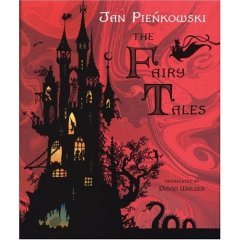Where's Your Skirt, Amelia Bloomer?
Over at Read Roger, there's a stunningly intelligent discussion about the latest spat of kidlit which features girls who disguise themselves as boys. (Let's see . . . Alphabet of Dreams. Check. The Secret of the Rose. Check . . . ) Sutton calls it a "defining trope" or even a "motif" of children's literature. Responding to Kelly Harold, he writes:
I would argue that what you mean instead is that "in most eras and cultures, girls whom we wish to commemorate for our own culture and era have had to dress as boys, etc." What I mean is, did as high a percentage of Colonial era girls have as much trouble with their sewing as our historical fiction about them would have it?Amen, brother! I'm sure there's a wealth of debate over the historical evidence of girls' relationships with the gender roles from ages past, but to tell the truth, whenever I come across a historical novel for kids that features girls who actually do attempt to fit into their society, it comes as a breath of fresh air. I think Joan Blos' A Gathering of Days: A New England Girl's Journal 1830-32 is one of the best examples of historical fiction with a female protagonist who is smart and strong, but exhibits these traits in a matter fitting her time and place.
Karen Cushman's Catherine, Called Birdy, on the other hand -- and which I really love and enjoy -- has a protagonist whose personality is so strong that it comes off as anachronistic. Yeah, girls like Catherine may have thought those things back in the Middle Ages, but would they have said them?
As for "girls whom we wish to commemorate for our own culture and era," let's not forget that stories of girls and gender-bending is a motif that stretches far beyond our own culture and era. Lousia May Alcott sent Jo out to shear her hair as part of a war effort (not quite the same as donning pants, but shocking to Victorians nonetheless). And during Alcott's time and before, the story of Joan of Arc -- one of the original cross-dressing hair-shearers -- made for popular reading among girls.
Speaking of Alcott, I think an interesting close to my post on this topic is to be found in Jo's Boys. Interested in how Alcott -- whom many view as a proto-feminist -- dealt with the balance between being smart and independent vs. domesticity? Read her description of the sewing circle created for female college students:
Mrs Meg was the first to propose enlarging this little circle; for asNeedles undisturbed, indeed.
she went her motherly rounds among the young women she found a sad
lack of order, skill, and industry in this branch of education.
Latin, Greek, the higher mathematics, and science of all sorts
prospered finely; but the dust gathered on the work-baskets, frayed
elbows went unheeded, and some of the blue stockings sadly needed
mending. Anxious lest the usual sneer at learned women should apply
to 'our girls', she gently lured two or three of the most untidy to
her house, and made the hour so pleasant, the lesson so kindly, that
they took the hint, were grateful for the favour, and asked to come
again. Others soon begged to make the detested weekly duty lighter by
joining the party, and soon it was a privilege so much desired that
the old museum was refitted with sewing-machines, tables,
rocking-chair, and a cheerful fireplace, so that, rain or shine, the
needles might go on undisturbed.



4 comments:
Loved your post, Brooke, and left a long comment.
But I've had a rough day in the kidlitosphere and, frankly, can't take any more criticism. So I deleted it.
Love your blog!!!
Awww. I'm a big softy when it comes to comments. C'mon, I'm curious to know what you have to say -- you seem far more informed on women's history than I am.
I liked this one too. Reminds me of someone's worries over the proper psychology of a certain British schoolboy . . .
I also liked Gathering of Days, now that you mention it.
There's so much in the phrase "girls whom we wish to commemorate [or is it invent?] for our own culture and era" . . .
But then too, as you say, women who wrote (ex. Alcott) had their own fantasies for feminine behavior and played with the tensions of the needle and the pen.
Just watched Old Acquaintance. Don't get me started on that one.
Post a Comment